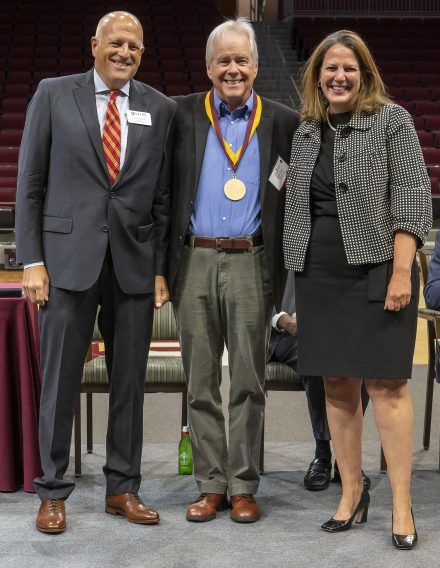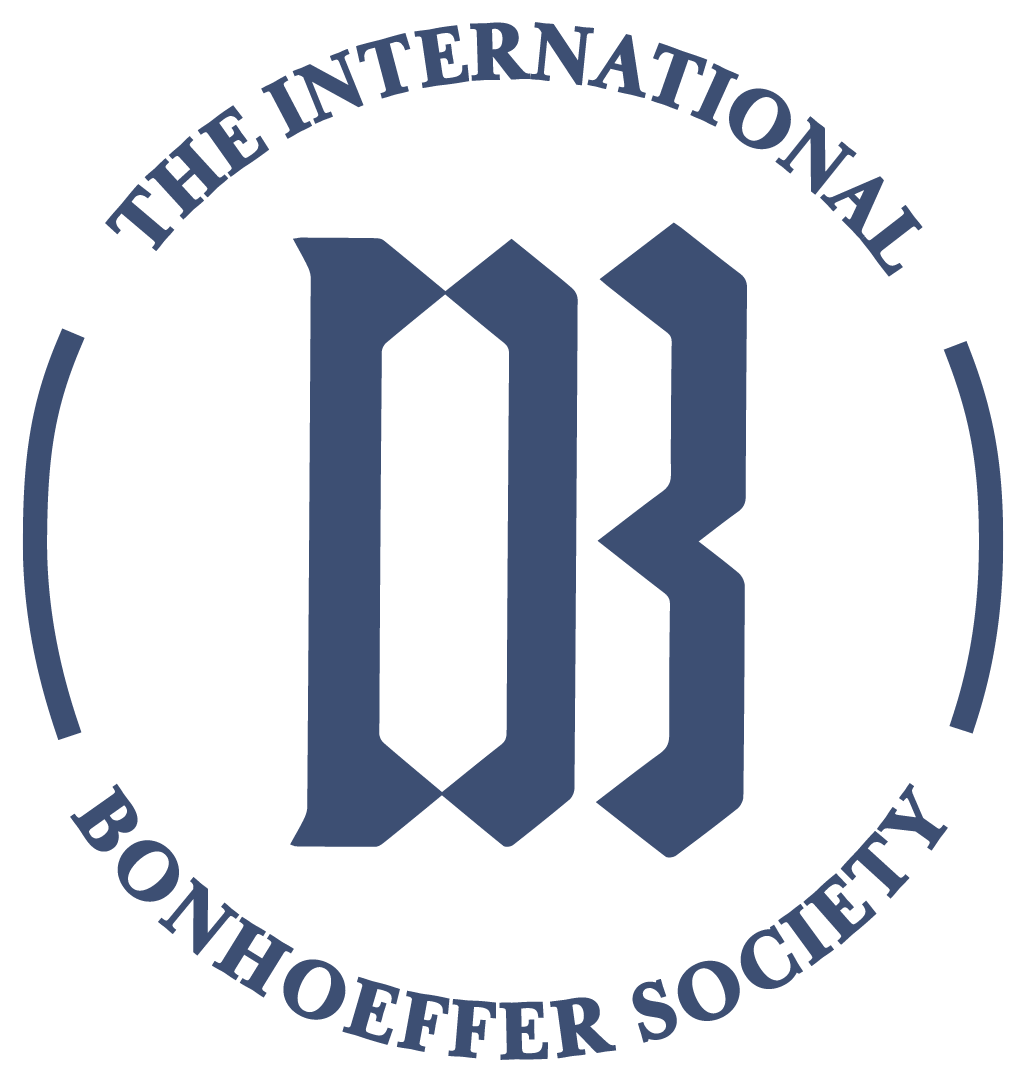Bonhoeffer scholar and former IBS-ELS Board Member, Dr. Jeffrey Pugh, was one of three members of the Elon University community to receive the 2022 Elon Medallion, the highest honor awarded by the university.
From Elon University News, “Today at Elon” –
Jeffrey Pugh
During his 32 years at Elon, Professor of Religious Studies and Distinguished University Professor Jeffrey Pugh helped fuel Elon’s national rise while inspiring members of our community to be their best selves. A gifted teacher and mentor, respected scholar, beloved colleague, and champion for justice, Pugh joined Elon’s Department of Religion in 1986 and quickly earned a reputation as an outstanding teacher. He transformed students’ lives by challenging them to examine their assumptions about themselves and the world around them and to create a more just society.
Recognizing early in his career Elon’s potential for national leadership, Pugh lent his wisdom and guidance to key initiatives that propelled the institution forward, including advocating for enhanced faculty salaries and providing the time and resources scholarly research requires. A valued and trusted colleague, Pugh also served as one of the founding faculty members of Elon’s Service Learning Community and helped to develop and pilot the first Global Studies course that today is an integral part of Elon’s Core Curriculum.

Pugh said after being presented with the medallion in Schar Center that he had arrived at Elon thinking he would only be there for a few years, but was inspired by those around him working to make Elon better and remained at the university for the rest of his academic career.
“This community took me in, they overlooked my flaws and they supported me during some very difficult days. … I came to love this community and I wanted to contribute something, anything, to help my colleagues,” Pugh said after being presented with the medallion. “Elon’s future, even with all of the tensions you presently negotiate, will be up to this community. Live into your greatest hopes and not your greatest fears, because I think that’s what we did, and that’s why we are where we are today.”
Believing the study of religion is central to a liberal arts education, Pugh collaborated with colleagues to grow and evolve their department from one centered primarily on Christian studies to the current, more inclusive Department of Religious Studies that focuses on the role of religion in diverse societies. Praised for his ability to think critically about the needs of the university and consider all sides of an issue, Pugh served with distinction on nearly every major university committee, including Academic Council, Promotion and Tenure, and the planning committees for the NewCentury@Elon and Elon Commitment strategic plans along with Elon’s multifaith initiative.


Jeffrey Pugh’s contributions to the Bonhoeffer society include publications and leadership roles. In 2009, he published Religionless Christianity: Dietrich Bonhoeffer in Troubled Times (T&T Clark). His 2020 contribution, “Bonhoeffer in Charlottesville,” to Dietrich Bonhoeffer, Theology, and Political Resistance (Lexington Books, Hale and Hall, eds.) details his decision – based on his reading of Bonhoeffer – to participate in the 2017 counterprotests to the white supremacist Unite the Right rally in Charlottesville, VA. Pugh also gave an address on this decision and experience at the Bonhoeffer Lectures in Public Ethics in Chicago in 2019.
In the early 2000s, Jeffrey Pugh served as the chair of the AAR Bonhoeffer Unit (Bonhoeffer: Theology and Social Analysis). Under his leadership, the group examined Bonhoeffer’s work in its relation to philosophy, Christology, aesthetics, human nature and ontology as well as entertained the constructive appropriation of Bonhoeffer’s work regarding topics such as spiritual formation, Jewish-Christian relations, intersubjectivity/Otherness, and world politics, specifically as it relates to war and peace. In addition, he facilitated the presentation of papers and panels addressing questions of theodicy, suffering, guilt, public responsibility, and forgiveness.
An invited panel at the 2003 meeting of the American Academy of Religion is of particular note. Pugh was instrumental in both its conception and actualization. Titled “Discerning God’s Will: Bonhoeffer’s Legacy in Times of Turmoil,” it featured prominent voices in contemporary discussions about war and peace: George Hunsinger, Jean Bethke Elshtain, and Stanley Hauerwas. Dr. Pugh presided over the sometimes heated debate that drew three times the number of attendees (nearly 330) as an average Bonhoeffer session. In conceiving this very successful and substantive session, Pugh established a pattern in shaping the Bonhoeffer AAR sessions to include, at least, one that would appeal more generally to religious scholars of many backgrounds and interests. In this way, he was moving towards the IBS-ELS Board’s more recent and more formal commitment to constructive readings of Bonhoeffer.

You must be logged in to post a comment.